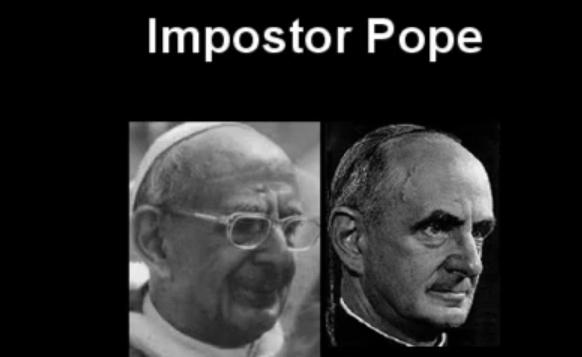|
Home - Latest News |
Introduction |
Bayside Messages |
Directives from Heaven |
Testimonies |
Veronica Lueken |
Miraculous Photos |
Videos |
 Lenten
readings Lenten
readings
The struggle against the capital
sin of envy
"My children, understand Us:
We do not come with messages to upset you or to make you afeared of Us; that is
not necessary. All you have to do is think, and use your hearts, not just your
head; I say, not just your head, for the scientist and those who are in charge
of the souls of your children are implanting in these souls dark seeds of hate,
and envy, and the need for materialism. O My children, I could repeat over and
over again the sins that make it a world of destruction for those who are trying
to stay on the narrow road to Heaven, while all obstacles are placed in his
way." - Our Lady of the Roses,
October 5, 1985
|
The
following is an excerpt from the classic book, The Spiritual Life: A Treatise
on Ascetical and Mystical Theology by the Very Reverend Adolphe Tanquerey,
S.S., D.D.
II.
Envy1
#845.
Envy is at once a passion and one of the capital sins. As a passion it consists
in a sort of deep sadness experienced in the sensitive part of our nature
because of the good we see in others. This sensitive impression is accompanied
by a contraction of the heart, slowing the activity of this organ and producing
a feeling of anguish.
Here we
are mainly concerned with envy inasmuch as it is a capital sin, and we shall
explain: (1) its nature, (2) its malice, (3) its remedies.
n1. ST.
CYPRIAN, "De zelo et livore," P. L., IV, 637-652; ST. GREGORY, "Moral.," 1. V,
c. 46, P. L., LXXV, 727-730; ST. THOMAS, II-II, q. 36; "De Malo," q. 10;
ALIBERT, op. cit., t. I, p. 331-340; DESCURET, t. II, p. 241-274; LAUMONIER, op.
cit., C. V.
#846. (1)
The Nature of Envy. A) Envy is a tendency to be saddened by another's
good as if that good constituted an affront to our own superiority. Often it
coincides with a desire of seeing the neighbor deprived of the particular good
that offends us.
This vice
proceeds from pride, which can bear neither superior nor rival. When we are
persuaded of our own superiority, we are saddened to see others better gifted
than we are or, with no greater gifts than ours, succeeding better than we do.
The object of envy is chiefly some brilliant quality; yet, with men of a serious
turn of mind envy bears also upon solid qualities and even upon virtue.
This
fault manifests itself in the pain we experience upon hearing the praises of
others, and in the subsequent attempt we make to depreciate this good opinion by
criticizing those that are thus commended.
#847. B)
Envy is often confounded with jealousy. They differ, however, in that the latter
consists in an excessive love of our own good accompanied by the fear lest we be
deprived of it by others. A student holding the first place in class, upon
noting the progress made by a classmate, becomes jealous of him because he fears
the latter may take away his rank. If we enjoy the affection of a friend and we
fear his affection may be alienated by a rival friend, we become jealous of him.
A man who has a large clientele, fearing lest it be reduced by a competitor, may
likewise become jealous. Hence arises the jealousy at times abounding among
professionals, among writers, and sometimes even among priests. The difference
between envy and jealousy, to put it briefly, is this: we are envious of
another's good, and jealous of our own.
C) There
is also a difference between envy and emulation. The latter is a praiseworthy
sentiment, urging us to imitate, to equal, and, if possible, to surpass the good
qualities of others, but always by means that are fair.
#848. (2)
Malice of Envy. We can make a study of this malice in itself and in its
effects.
A) In
itself, envy is by nature a mortal sin, because it is directly opposed to the
virtue of charity which requires us to rejoice in the good fortune of others.
The more important the good we envy, the graver is our sin. Thus, says St.
Thomas,1 to make envy bear upon the spiritual goods of the neighbor,
to be saddened at his spiritual progress or his apostolic success is a very
grave sin. This is true only when these envious impulses are fully consented to,
however, often they are mere emotional impressions, or at most, feelings in
which there is but little reflection and will. These latter constitute only a
venial fault.
n1. "Sum.
Theol.," IIa IIae, q. 36, a. 4, ad z.
#849. B)
In its effects envy is at times very culpable:
a) It
stirs within us sentiments of hatred: we run the risk of conceiving a hatred for
those whom we envy or of whom we feel jealous and, as a result, of speaking ill
of them, of blackening their character, of calumniating them, of wishing them
evil.
b) It
tends to sow discord, not only between strangers, but between related families,
and even among members of the same family. We need only to recall the history of
Joseph and his brothers. These dissensions may go very far towards creating
enmities and scandals. At times envy divides the Catholics of a given region to
the great detriment of the Church.
c) It
urges men on to the immoderate quest for riches and for honors: in order to
surpass those whom we envy, we indulge in overtaxing work, take steps of a more
or less questionable nature, by which we sin against loyalty and even against
justice.
d) It
disturbs our peace of soul: we know no peace nor tranquillity as long as we do
not succeed in eclipsing, in subjugating our rivals, and since this happens but
seldom, we live in perpetual anguish.
#850. (3)
The Remedies For Envy. They are negative or positive.
A) The
negative means consist: a) in scorning the very first intimations of envy and of
jealousy that arise in the heart, in crushing such sentiments as something vile,
as one would crush a viper; b) in distracting the mind, by occupying ourselves
with any other thing, and when calm returns by constantly bearing in mind that
the good qualities of our neighbor do not lessen ours, but are a stimulus to
imitation.
#851. B)
Among the positive means, two are especially important.
a) The
first is drawn from the fact of our incorporation into Christ: we are all
brethren, members of a mystical body the head of which is Christ; the good
qualities and the attainments of one member redound to all the others. Instead,
then, of being saddened at the superiority of our brethren we must rejoice,
according to the teaching of St. Paul,1 since their superiority
contributes to the common good and to our own particular welfare. If it be the
virtues of another that we envy, "instead of bearing them envy and jealousy on
account of those virtues, as occurs often through the suggestion of the evil one
and of self-love, you should unite to the Holy Spirit of Jesus Christ in the
Blessed Sacrament, honoring, in Him the source of those virtues, and begging of
Him the grace to share and partake therein. You will see how useful and how
profitable such practice is to you."2
n.1
Rom.,.XII, 15, 16.
n2. OLIER,
"Cat. for Int. Life," II, Lesson XIII.
#852. b)
The second means consists in cultivating that noble and Christian sentiment of
emulation, which prompts us to imitate and even surpass the virtues of our
neighbor, with the help of God's grace.
In order
that emulation be good and remain free from envy, it must be: 1) right in its
object, that is to say, it must bear not on the successes, but the virtues of
others, and this in order to imitate them. 2) It must be worthy in its motives,
seeking not to vanquish others, humiliate them, bring them under subjection, but
to make us better, in order that God may receive greater honor and the Church
greater prestige. 3) It must be fair in the means it employs to attain its ends
not intrigue, not subterfuge nor any other unlawful proceedings; but effort,
labor, the right use of the divine gifts.
Thus
understood, emulation is an effective remedy against envy, since it works harm
to no one and is at the same time an excellent stimulus. For to consider as
models the best among our brethren in order to follow in their steps or to go
even further than they do, is in reality to acknowledge our own imperfections
and to seek to remedy them by profiting by the example of those around us. It is
to imitate St. Paul, who invited his disciples to be imitators of himself as he
was of Christ;1 it is to follow the same Apostle's advice to the
Christians: "Let us consider one another to provoke unto charity and to good
works;"2 it is to enter into the spirit of the Church, which, in
proposing to us the Saints for our imitation, provokes us to a high and hallowed
emulation. Thus, what would have been envy, proves to be an occasion for the
cultivation of virtue.
n1. I
Cor., XI, 1.
n2. Hebr.,
X, 24.
"Without My Son you are
lost. A godless nation shall fall. A nation that has been eaten away and
rotted by sin shall fall. A nation that has turned itself back and regressed
to a state of animal living bordering on all sins of the flesh and impurity;
given over to all manner of seeking things of the world; power, lust, envy,
hate, murders, abortions, worship of false idols; loving money, power, and
lacking the instinct of survival when survival can only be reached by
pleading from them to the merciful heart of the Eternal Father."
- Our Lady of the Roses, June 13, 1981
Directives
from Heaven
D89
- Sin
 PDF
PDF
D107 -
Pride  PDF
PDF
D108 -
Humility
 PDF
PDF
D119
-
Jesus Christ, Redeemer  PDF
PDF
D292 -
Way of
the Cross
 PDF
PDF
Videos online:
| Home |
Introduction |
Bayside Messages |
Directives from Heaven |
Miracles & Cures | Veronica Lueken |
Miraculous Photos |
Videos |
Revised:
February 26, 2012
Lenten readings
 Vatican
II
Vatican
II World
Monetary Crash
World
Monetary Crash Deception
of the Century
Deception
of the Century Third
Secret Fabrication
Third
Secret Fabrication The
Miraculous Story of Bayside
The
Miraculous Story of Bayside A
Pilgrimage to Our Lady of the Roses Shrine
A
Pilgrimage to Our Lady of the Roses Shrine Jacinta's
Third Secret vision: She saw Pope Paul VI
Jacinta's
Third Secret vision: She saw Pope Paul VI